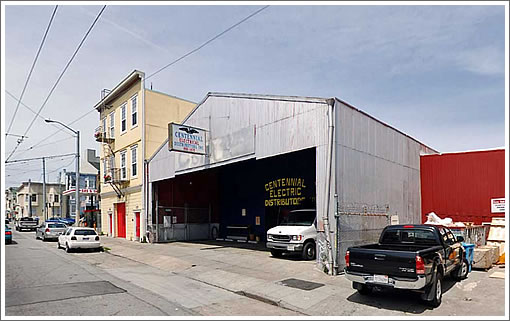
As the San Francisco Planning Code reads with respect to the Mission Alcoholic Beverage Special Use Subdistrict:
There is an unusually large number of establishments dispensing alcoholic beverages, including beer and wine, for both on-site and off-site consumption in this area. The existence of this many alcoholic beverage establishments appears to contribute directly to numerous peace, health, safety and general welfare problems in the area, including loitering, littering, drug trafficking, prostitution, public drunkenness, defacement and damaging of structures, pedestrian obstructions, as well as traffic circulation, parking and noise problems on public streets and neighborhood lots.
The existence of such problems creates serious impacts on the health, safety and welfare of residents of nearby single- and multiple-family areas, including fear for the safety of children, elderly residents and of visitors to the area. The problems also contribute to the deterioration of the neighborhood and concomitant devaluation of property and destruction of community values and quality of life. The number of establishments selling alcoholic beverages and the associated problems discourage more desirable and needed commercial uses in the area.
In order to preserve the residential character and the neighborhood-serving commercial uses of the area, there shall be a Mission Alcoholic Beverage Special Use Subdistrict to prohibit new establishments, or expansion of existing establishments, selling alcoholic beverages for the property in the area generally bounded by Guerrero Street, San Jose Avenue, Randall Street, Mission Street, Cesar Chavez Street, Potrero Avenue and Fourteenth Street.
Exemptions for “Bona Fide Restaurants” and “Non-Profit Theaters” are already on the books. And as proposed and sponsored by Supervisors Kim and Wiener, an amendment to allow “Bowling Alleys” in the Mission to serve alcoholic beverages will be added as well, paving the way for the proposed Mission Bowling Club at 3176 17th Street.
∙ Ordinance Permitting Bowling Alleys To Serve alcohol In The Mission
Bars == Prostitutes…got it!
“There IS an unusually large number of establishments . . . .” That opening grammar inspires such civic confidence.
“Mission Alcoholic Beverage Special Use Subdistrict”
Once again, the propagandist naming of districts here — the name of the district is what is NOT allowed. See also the Fast Food and Pet Store district and others.
So instead of cleaning up actual threats to the general welfare, you eliminate bars. That’s genius.
It is surprisingly easy in this town to get a relatively monopoly or oligopoly for your business.
I don’t that’s a grammatical error at all. At worst, a minority view of the issue. “Number” is singular. “There is a number” or “There are a number” both work here.
“Number” is singular, but it’s not word in the sentence that determines whether to use “is” or “are”. The word that determines “is” vs. “are” in the sentence is “establishments”, which is plural. The word “number” is an adjective in this context. If you ended the sentence with “number” (“There is a number.”) you would not have a complete sentence. You need “establishments” to complete the sentence, and therefore the verb “is” and the subject “establishments” must match.
From Garner’s Modern American Usage:
“‘[A] number of’ is quite correctly paired with a plural noun and a plural verb, as in ‘there are a number of reasons [examples]. . . . This construction is correct because of the linguistic principle known as SYNESIS, which allows some constructions to control properties such as number according to their meaning rather than strict syntactical rules. Since the meaning of ‘a number of things’ is ‘many things’ (or ‘several things’), and since ‘some things’ is plural, the verb must be plural.”
Yes, yes, I’m aware of this explanation. But you’ll also find just the opposite “rule.” “‘Number’ is singular, thus, ‘there is a number.’ ‘Of establishments’ is a prepositional phrase that modifies the object, ‘number.'”
If it is an error at all, it is nothing to warrant any real criticism.
I was beginning to think that planning was actually making sense, until reading about the exceptions. It is actually very classist and there should be no exemptions if they really believe that alcohol causes nuisances from everybody and not just those who aren’t upper class hipsters.
If it is an error at all, it is nothing to warrant any real criticism.
It sounds either ignorant (most likely in this context) or misguidedly pedantic (best case scenario). I stand by my criticism.
On the substance, the ordinance is obviously idiotic, logically flawed (per sf’s post), and a pure power grab by entrenched interests (per sfrenegade’s post). Doubt we’re going to see much debate on these points in this thread.
Sorry, last one on this but this is certainly incorrect: ‘Of establishments’ is a prepositional phrase that modifies the object, ‘number.’
“Establishments” is the object of the sentence. “Number of,” while dressed up as a noun, is actually an adjectival phrase modifying “establishments.” This is the point about synesis.
Mountain/molehill.
This has been a waste of my precious minutes.
I mean, these have been a waste of my precious minutes.
There are a number of precious minutes. It has been wasted.
I, for one, enjoy the grammar policing-type comments, even if they are off topic per se.
As far as the Alcoholic Beverage Special Use Subdistrict, there’s nothing SF-special about this, lots of other larger cities with high concentrations of bars in certain neighborhoods have them on the books.
And even if it (the special use district) were unique to The City, the folks at planning don’t come up with these kinds of things on their own; neighborhood complaints come into the Board of Supervisors and then the Board directs planning staff to draft rules in response and then votes them into the relevant code(s).
I wouldn’t eat the burgers there.
Excellent form while arguing grammar.
Heck lets merely rezone residential areas surrounding all the known addresses of realtors.
Heck lets merely rezone residential areas surrounding all the known addresses of realtors.